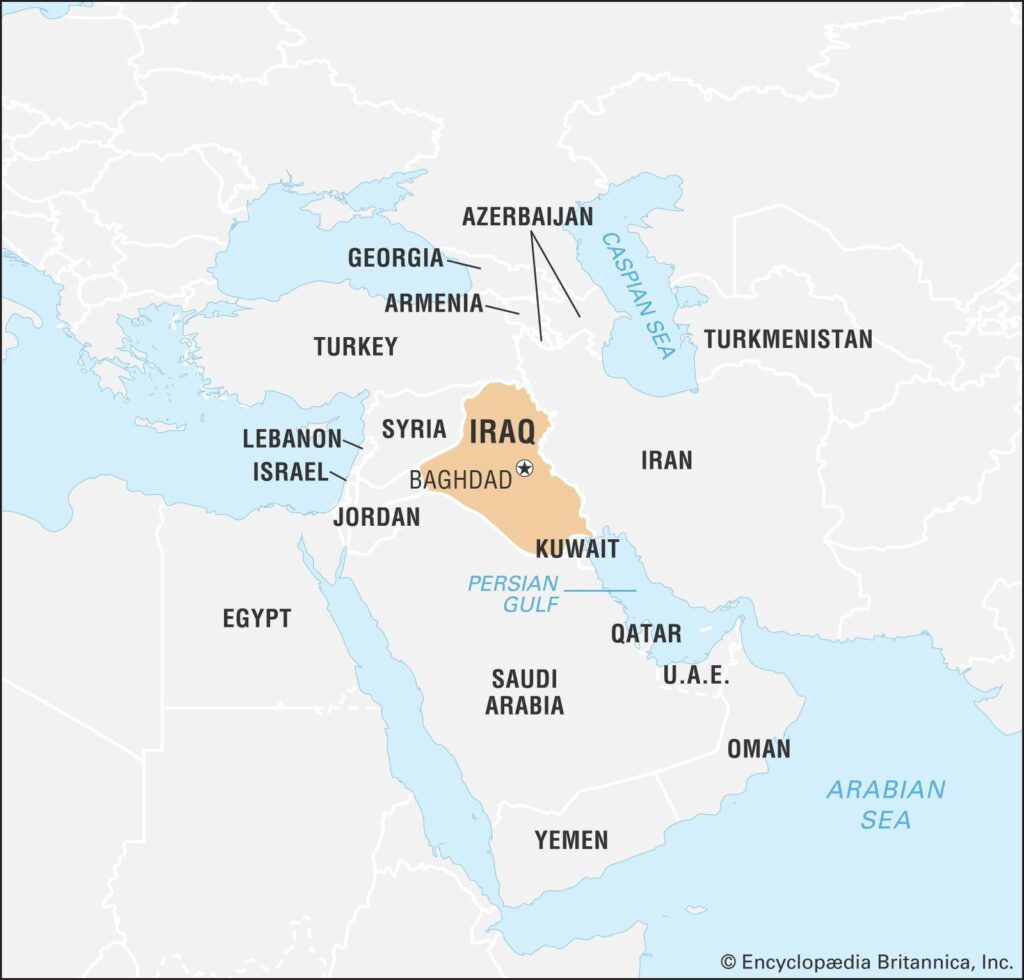Iran Abstains from Attacking Iraqi Bases Hosting U.S. Forces – Insights from Iraqi News
Amid rising tensions across the Middle East, it has been confirmed that Iran has not engaged in any retaliatory strikes against Iraqi military installations where American troops are stationed. This restraint emerges at a critical juncture, following a series of confrontations involving Iranian-backed militias and regional actors, which had raised alarms about potential escalation into wider conflict. The Iraqi government’s firm stance on protecting these bases highlights its delicate role in balancing relations between Washington and Tehran. As diplomatic and military observers keep a close watch on developments, Iran’s decision to hold back may significantly influence Iraq’s internal stability and its geopolitical positioning.
Absence of Iranian Military Actions Against U.S.-Hosted Bases in Iraq
Recent intelligence assessments and official statements from Baghdad have dispelled rumors suggesting that Iranian forces have targeted Iraqi bases accommodating American personnel. According to multiple credible sources within the Iraqi defense establishment, there is currently no verified evidence indicating any missile or drone attacks launched by Iran against these strategic sites. This clarification comes amid heightened regional unease triggered by previous skirmishes involving Iranian proxies.
The Iraqi Armed Forces have reiterated their commitment to securing national territory while ensuring the safety of foreign troops operating within their borders. Enhanced security measures—including increased surveillance around sensitive locations—are actively being implemented to deter any potential threats.
Diplomatic efforts remain robust as well; open communication channels between Iraq, the United States, and neighboring countries continue to facilitate dialogue aimed at de-escalation. The government has urged all parties for calmness and prudence to avoid actions that could jeopardize both Iraq’s sovereignty and international troop safety.
Local leaders advocate for sustained engagement through initiatives designed to foster peacebuilding cooperation such as:
- Heightened Security Operations: Deployment of advanced monitoring technologies around key military facilities.
- Multinational Training Programs: Conducting joint exercises with coalition partners to enhance operational readiness.
- Regional Diplomatic Collaboration: Ongoing consultations with neighboring states focused on shared security concerns.
Examining Regional Security Trends: Consequences for U.S.-Iraq Cooperation
The confirmation that no direct Iranian assaults have occurred against bases hosting U.S. forces underscores a fragile yet pivotal equilibrium among major stakeholders in this volatile region. This temporary calm reflects complex strategic calculations by Tehran—likely aimed at avoiding an outright confrontation with American forces while maintaining influence through proxy groups elsewhere.
Experts suggest this posture may be influenced by intensified diplomatic pressures exerted by global powers seeking stability amid ongoing conflicts throughout the Middle East.
For bilateral relations between Washington and Baghdad, this environment presents both challenges and opportunities:
- Empowering Iraqi Sovereignty: Encouraging greater self-reliance through expanded military assistance programs.
- Cautious Monitoring of Iranian Proxy Activity: Vigilance remains essential given Iran’s continued indirect involvement via allied militias.
- Sustaining Strategic Presence: Balancing troop deployments so as not to provoke tensions while supporting local security frameworks.
This nuanced situation demands careful navigation as policymakers weigh how best to support Iraq without exacerbating regional rivalries or undermining national autonomy.
Strategies for Bolstering Defense Capabilities Amid Persistent Regional Uncertainty
Given the evolving geopolitical landscape marked by intermittent flare-ups across neighboring territories, it is crucial for involved nations—especially those hosting foreign troops—to continuously upgrade their defense postures through multifaceted approaches:
- Cybersecurity Enhancements: With cyber warfare becoming increasingly prevalent globally, investing in resilient digital defenses is paramount.
- Bilateral & Multilateral Military Drills: Regular joint exercises improve interoperability among allied forces facing common threats.
- Tactical Intelligence Exchange Networks: Streamlined sharing mechanisms bolster situational awareness enabling rapid coordinated responses.
- Mental & Physical Infrastructure Fortification: strong > Reinforcing base facilities reduces vulnerabilities against sabotage or indirect attacks such as rocket barrages or UAV strikes. li >
ul >In parallel with military preparedness efforts, diplomatic engagement remains indispensable in mitigating risks associated with miscalculations or unintended escalations:
Diplomatic Initiative Main Objective Aspired Result Regional Peace Summits Facilitate constructive dialogue among conflicting factions Lower incidence of armed clashes td > Economic Integration Projects td > Strengthen interdependence via trade partnerships td > Promote enduring political stability td > Backchannel Negotiations (Track II Diplomacy) td > Engage influential non-governmental actors toward conflict resolution td > Innovative pathways toward tension reduction td > Concluding Perspectives: Navigating Complexities Toward Stability
In summary, recent confirmations regarding Iran’s abstention from attacking U.S.-hosted bases within Iraq highlight an intricate balance shaping current Middle Eastern geopolitics. While tensions persist beneath the surface due largely to competing interests between Tehran and Washington, Baghdad continues striving for equilibrium—protecting its sovereignty while managing external influences carefully.
As international stakeholders maintain vigilant observation over unfolding events—with particular attention paid toward shifts in military deployments—the hope endures that sustained diplomatic endeavors will pave pathways toward peaceful coexistence rather than renewed hostilities.
Iraqi News remains dedicated to delivering comprehensive updates alongside expert analyses on these critical developments affecting regional peace prospects now more than ever before.
